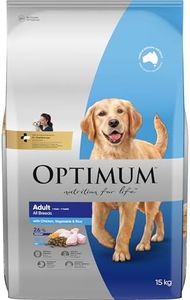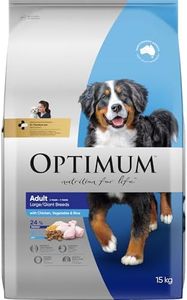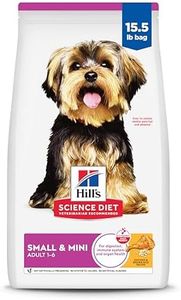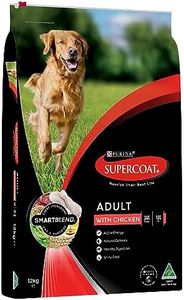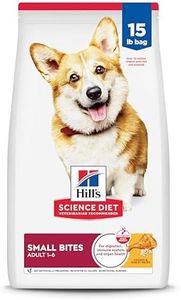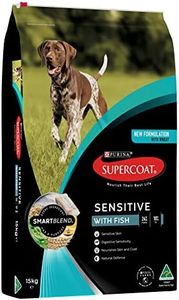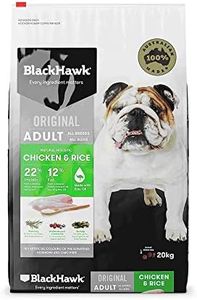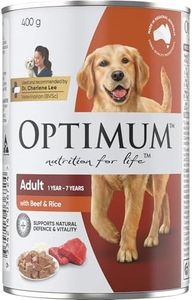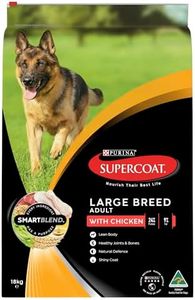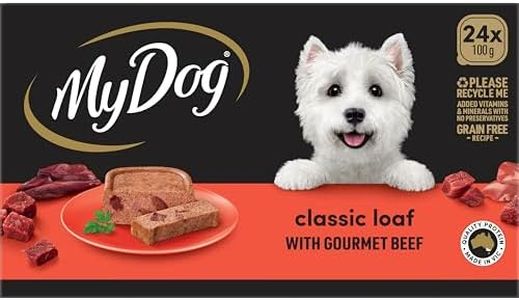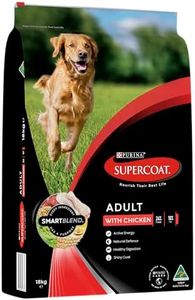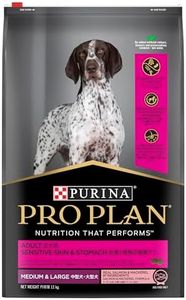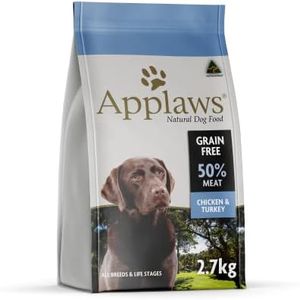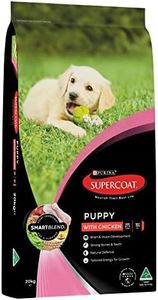We Use CookiesWe use cookies to enhance the security, performance,
functionality and for analytical and promotional activities. By continuing to browse this site you
are agreeing to our privacy policy
10 Best Dog Foods
From leading brands and best sellers available on the web.By clicking on a link to a third party's website, log data is shared with that third party.
Buying Guide for the Best Dog Foods
Choosing the right dog food is an important decision for your pet’s health and happiness. Every dog is unique, with their own dietary needs that change with age, size, activity level, and any health issues. The aim is to find a food that provides complete and balanced nutrition, supporting your dog's energy, immune system, and overall well-being. Taking time to read labels, understand ingredients, and match the food type to your dog's lifestyle and needs will help you make an informed choice your pet will benefit from.Type of Dog FoodDog food comes in several forms: dry (kibble), wet (canned), raw, and dehydrated/freeze-dried. Kibble is convenient and has a long shelf life, making it a popular everyday choice. Wet food is more palatable for picky eaters and provides extra hydration, but needs refrigeration after opening. Raw and freeze-dried options aim to mimic what dogs might eat in the wild but require careful handling to avoid bacteria. When picking the type, consider your dog’s taste preferences, dental health, and your own ability to store and handle the food safely.
Life Stage FormulaDog foods are labeled for puppies, adults, or seniors because dogs' nutritional requirements change as they grow. Puppy formulas provide extra protein and calories for growth, adult formulas maintain energy and health, and senior foods have fewer calories and special nutrients for aging bodies. Always choose a formula matching your dog's age to ensure they get the right balance of nutrients.
Protein Source & ContentProtein is a key part of a dog’s diet, supporting muscles and bodily functions. Look for foods where a quality meat source (like chicken, beef, or fish) is one of the first ingredients. Protein content can vary: higher amounts are great for active or working dogs, while moderate levels suit most family pets. If your dog has allergies or sensitivities, look for limited ingredient recipes focusing on one type of meat.
Ingredient List QualityThe ingredient list shows everything in the food, from meat to fillers to vitamins. Foods with whole ingredients and fewer artificial additives are generally better. Avoid foods stuffed with unnecessary fillers (like corn or soy) unless your vet recommends them for specific sensitivities. Choose foods with wholesome grains, vegetables, and named meats for better overall nutrition.
Specific Dietary NeedsSome dogs need special diets due to allergies, sensitivities, weight control, or health issues. There are foods formulated for grain-free, hypoallergenic, sensitive stomachs, or specific medical needs. If you know your dog has special requirements, look for foods labeled for those needs, and consult your vet if you’re unsure.
Kibble Size & TextureEspecially with dry food, kibble size matters for your dog's jaw and teeth. Smaller breeds benefit from tiny bites, while large breeds may need bigger pieces to encourage proper chewing and prevent gulping. Texture can also aid in dental health, helping to reduce tartar buildup for some dogs.
AAFCO Statement/Complete Nutrition CertificationLook for a statement from the Association of American Feed Control Officials (AAFCO) or an equivalent in your region, indicating the food is 'complete and balanced' for your dog's life stage. This means the food meets basic nutritional standards, ensuring your pet gets everything they need for health.
